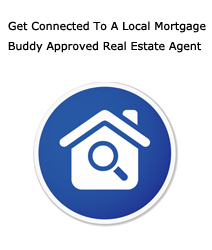Buying a bank owned home can be a great way to build sweat equity in your new home. However, there are many potential issues which a buyer needs to be aware of before deciding to look at bank owned homes.
First, you will need to understand the difference between a short sale home, a home sold at a foreclosure auction and a bank owned home. A short sale is a house that is being sold by the individual home owner. The home owner owes more on the mortgage loan than the house’s fair market value, and is asking permission from their lender to sell the house for less than is owed. Usually the home owner is in default, and the bank has begun the initial phase on the foreclosure process.
Once the lender has jumped through all of the legal filings & hoops necessary to take the property back from the home owner, the last step is the foreclosure process if the auction. The bank hires an attorney & auctioneer and sells the property to the highest bidder right out in front of the property. Buying a house at a foreclosure auction is not recommended for the average consumer. Buying a home at foreclosure auction means you buy the property sight unseen, viewing the property only from the street. You can not see the inside of the home, you do not have a chance to inspect before bidding, you may need to evict current occupants, the bank may not have conducted the foreclosure properly, and if you can not close in 30 days you will lose your $5,000 or $10,000 deposit.
A bank owned home, also known as R.E.O. property (“Real Estate Owned”), is usually the property most consumers know as foreclosed home. Often times the bank is the winning bidder at the foreclosure auction. Their winning bid means they now officially own the property. Once the bank takes title, they usually evict the occupants, clean out the property and hire a real estate agent to sell the home.
The following are tips when purchasing a bank owned/foreclosed property:
- When searching and then making an offer on a foreclosed property select a realtor that is well versed in the sale of foreclosed properties. They will help you determine market value.
- Foreclosed properties remain a very good value. As inventories decrease and the housing market stabilizes we will see more multi offer situations. If you are competing against other offers, don’t assume they will call best and final. Make your best offer first. Cash is king, however terms and conditions will also be a significant part of the decision.
- Once your offer is accepted, you will have to sign a purchase and sale in 48 hours. Have an attorney well versed in the purchase of bank owned properties at the ready to review the purchase and sale. No changes can be made to the document or it voids the document. Only addendums can be added to make changes.
- Be prepared that the house will be winterized and the bank may not de winterize or put on utilities for the buyer inspection. Buyer may have to do a dry inspection. Allow enough room in your budget to do repairs.
- If you are not paying cash, get qualified for a rehab loan incase repairs are necessary.
- Be prepared to be responsible to obtain the smoke and carbon certificate of compliance.
- Have your attorney do a title search early to determine if there are issues.
- Be prepared for delays.
- Remember you are purchasing a discounted property. If you become frustrated with the process, think of good deal you are getting once it closes.






